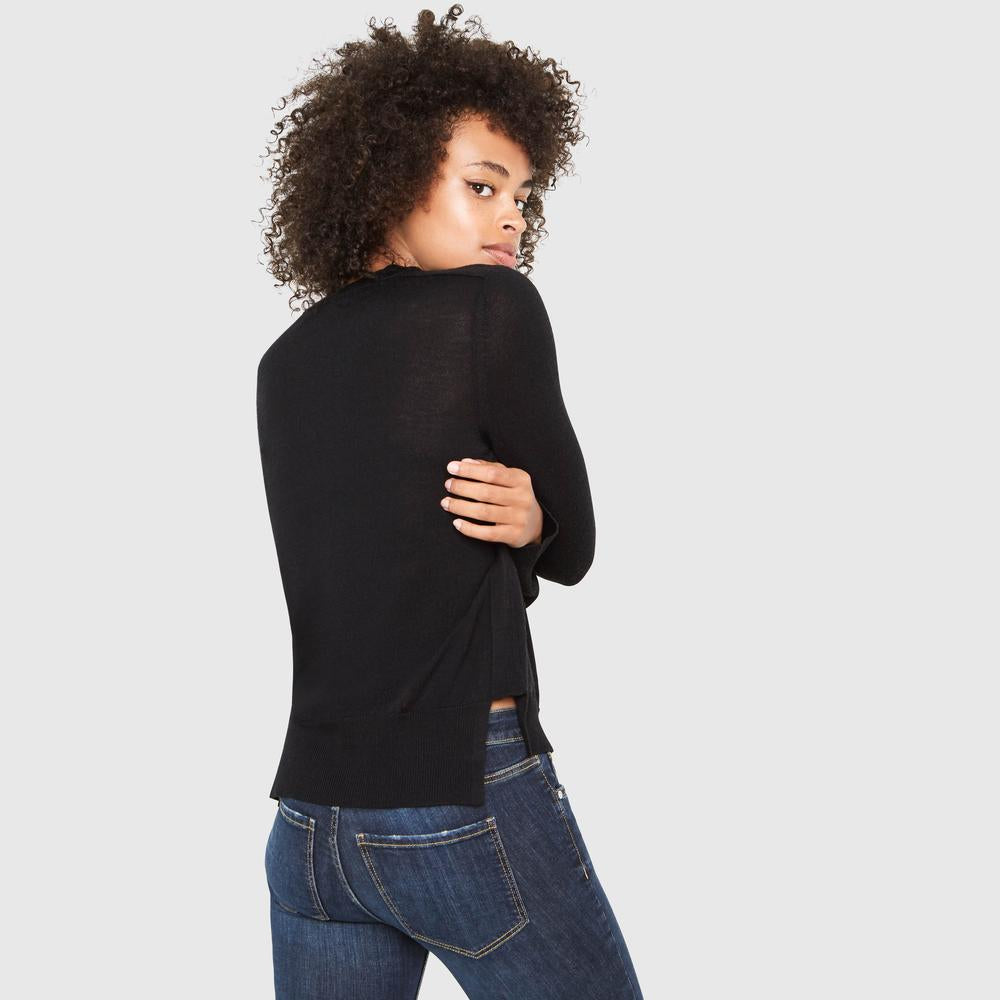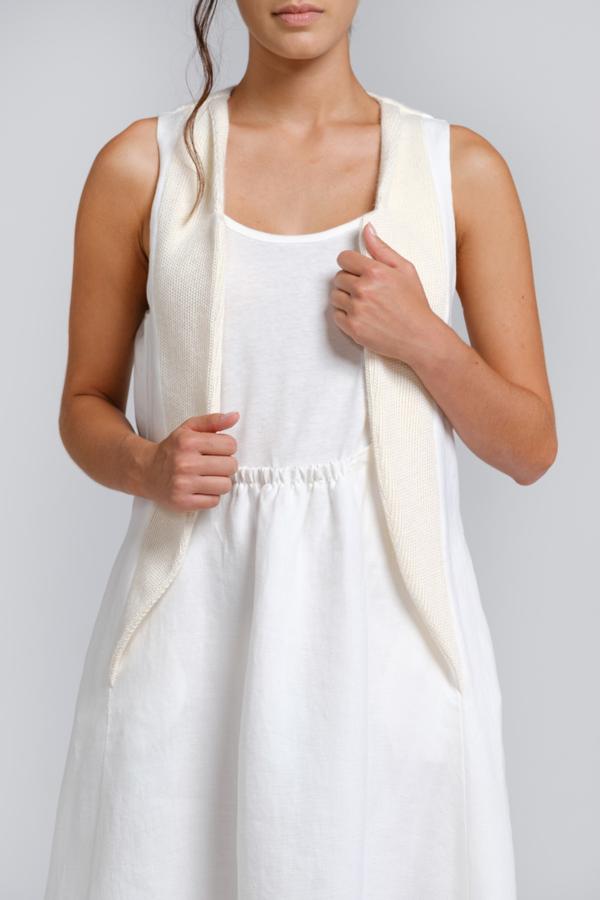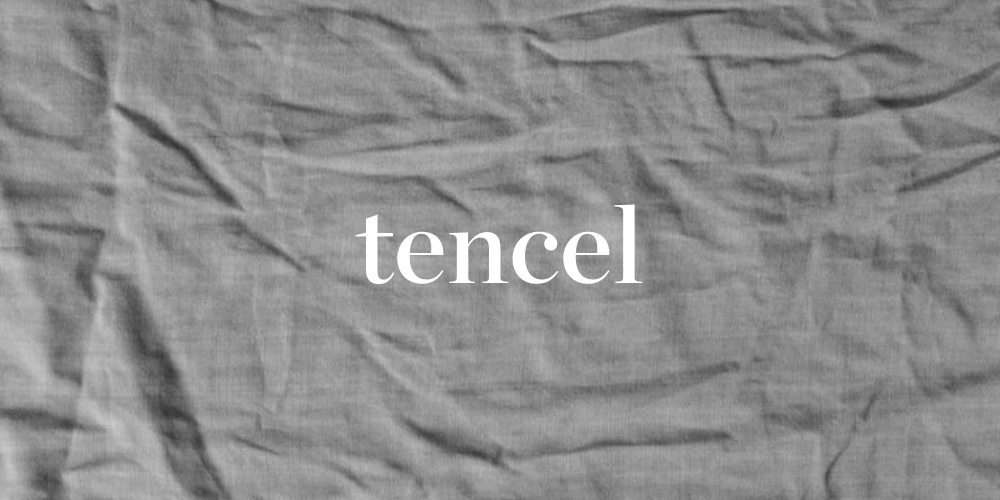Guide to Sustainable Fabrics
Most people don't stop to think about how the fabric of the clothing you wear affects the environment. Hint: it actually causes a substantial amount of damage to the environment. Fabrics used in clothing production is responsible for “approximately 20% of water pollution” of the world.
Fabrics to avoid include polyester, rayon, nylon and acrylic because they are not biodegradable and are produced in ways that use large amounts of energy and water. The good news is that sustainable fabrics are a way to stay in fashion while helping conserve the environment, as a conscious consumer.
Sustainable fabrics are those fabrics that are made of environmentally friendly materials, such as recycled textile, organically farmed raw materials, and deadstock fabrics. These fabrics have low environmental impacts especially when compared to conventional textiles used in fast fashion. Many companies create new products using a mixture of sustainable materials, such as organic cotton with upcycle or recycled polyester. Another important way in which a fabric can be sustainable is its durability; if a fabric is durable, it does not need to be purchased as often and in such high quantities that produce large volumes of waste.
ourCommonplace promotes the use of sustainable fabrics by uniquely sourcing brands and collections that utilize sustainable fabrics. The use of sustainable fabrics go along with the values at the core of ourCommonplace, toxic-free, cruelty-free, sustainable and ethical.


ourCommonplace has a great selection of clothes made from sustainable fabrics, including cotton, linen, wool, hemp and tencel. Sunday Morning’s Ava Wide Leg Linen Pant is made from 100% French flax linen which guarantees you that it meets human - ecological requirements. While it is comfortable enough to be used as sleepwear, it is chic enough to wear to grab brunch, walk the dog, or engage in any other Sunday Morning activity.
Arielle’s Unisex Overall is made from Organic Cotton and is a classic, style that features 5 pockets and adjustable straps. It's truly timeless, seasonless and genderless which makes it perfect for any wear.
Read for a clear guide on sustainable fabrics!

Cotton
Cotton is a durable fabric, but has a large environmental impact when not sustainably produced. Did you know it takes 2,700 liters of water to produce one t-shirt made of conventional cotton? Organic cotton is the perfect alternative because it holds all the positives that make cotton so appealing, without the environmental damage. Organic cotton is grown without pesticides and uses up to 70% less water than conventional cotton. Organic cotton is still as renewable as conventional cotton. Cloth Foundry creates closet staples inspired by nature, using sustainable fabrics including cotton.


The Cleaner Cotton Tank Dress is a light and airy full length dress that works perfectly at the beach or the ballroom. It is a perfect fabric to give life to a dress that will follow you in all your movements when you wear it. The dress will make you feel like you’re walking on a sandy beach or at a peaceful hike through nature all while sitting at your home office. Speaking of vacations, as soon as we are able to travel, the Cleaner Cotton Short will become your go-to beach cover-up because of it's soft and breathable fabric. It's perfect for being on the go or just lounging around.

Linen
Mankind has been using flax plants to create durable textiles since 8000 BCE. Grown from flax plants, linen is a breezy, comfortable fabric often used to make clothing pieces. It has a low environmental impact due to low water and energy requirements to process the textile. Few pesticides are used in the cultivation of the plant, making it one of the most environmentally friendly textiles available.

The Monet Dress in Terracotta is a handcrafted dress that will instantly make you feel summer ready. It's perfect for all types of events or day to day wear.

The LAHIVE LEO Linen Slim Pant has just the right amount of stretch to keep you comfortable from day into night. This style caresses your bum just so, while falling straight down and tapering in at the ankle.

Wool
Wool can also be a sustainable fabric, taking into account the treatment of the animals it is sourced from. The Responsible Wool Standard certifies that wool comes from conscious farmers that respect the well being of the animals. Wool is an animal-based textile from the fleece of sheep, goats, and lambs. Wool is also highly biodegradable, and renewable.

Wool is a wardrobe essential and Arielle's Durga Pant made from Recycled Wool is no exception. Recycled wool knit lends a leisure approach to suiting. The Durga Pant features a cozy interior, slant pockets, zip front fly and elasticated back waistband in a high rise fit. This can be styled with your favorite blazer or button down. This recycled wool is developed from 100% recycled fibers from unwanted sweaters, blankets and fabric scraps in Prato, Italy.

The R Collective uses upcycled wool to create their Arnhem Jacket. Defined by its double-breasted front, the Arnhem Jacket's oversized lapels add a dramatic flair to an otherwise classic wardrobe staple.

Hemp
Another plant based textile, hemp is derived from the cannabis plant. It is sustainable because it is able to grow in varying terrains and grows rapidly. Unlike cotton, growing hemp does not require large amounts of water. Hemp produces “250% more fiber than cotton and 600% more fiber than flax.” Hemp is biodegradable, sans extra pesticides and dyes.


Trame di Stile is a sustainable women’s clothing brand made in Italy, that features a variety of pieces made from 100% natural hemp. Their Natural Hemp Dress in white, is an ephemeral and breathable piece that will connect you to a natural environment. Their cream colored Natural Hemp Cardigan Shirt is the perfect cozy essential, to elevate any everyday look.

Tencel
Tencel is a versatile fabric that is produced from “sustainably sourced wood by environmentally responsible processes.” Tencel is plant-derived, biodegradable and breathable. What more could one want from a synthetic fiber? Incorporating this new sustainable alternative fabric is easier than you think.

In search of a casual daytime dress for your wardrobe? Onīrik’s Theresa Sweatshirt Dress might just be the missing piece. The dress has flattering curved seams at the sides that lead into pockets and matching ribbed trim at the neck and the sleeves.
All in all, it is important to note that no fabric is truly 100% sustainable but the fabrics available today are moving towards a more sustainable future. Using sustainable fabrics can help to reduce the amount of environmental damage and water pollution caused by garment manufacturing. Preserving our environment starts with small changes, such as shopping sustainably and being conscious about the sustainability of fabrics.
